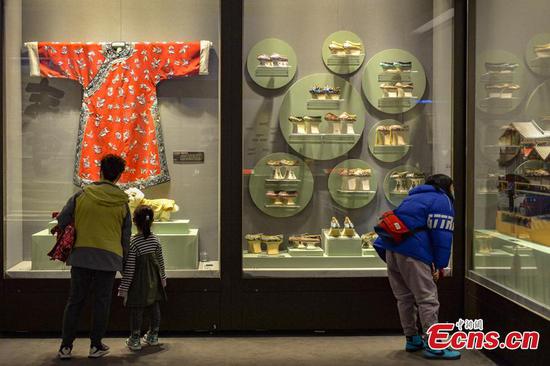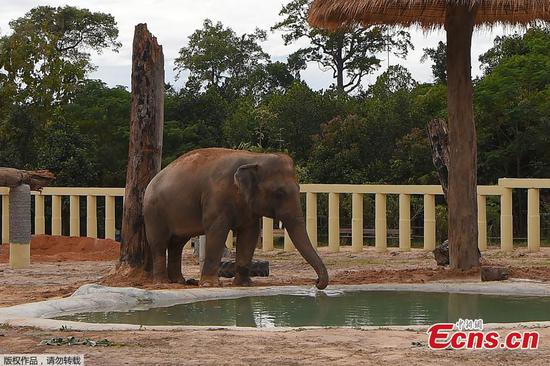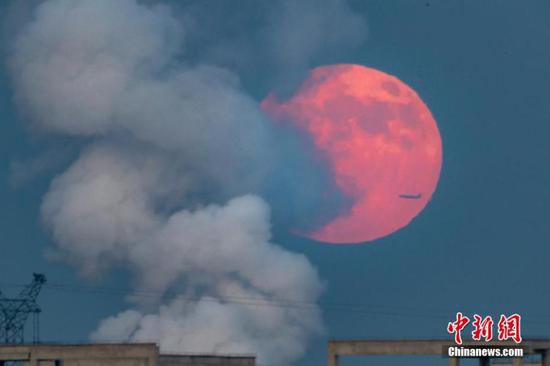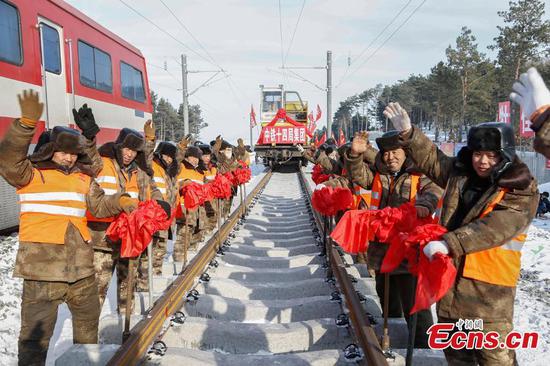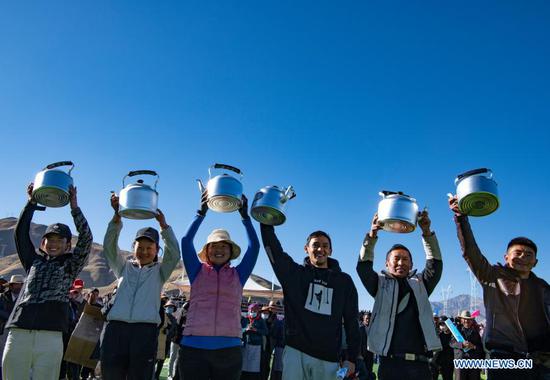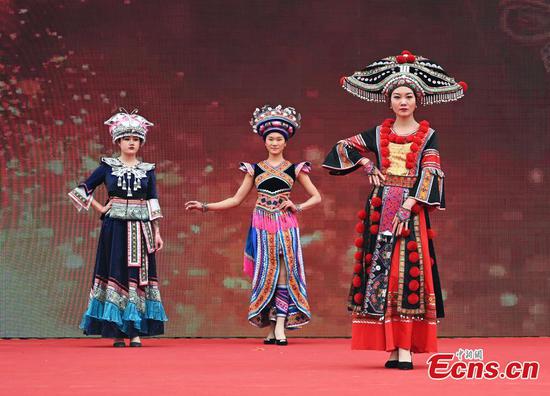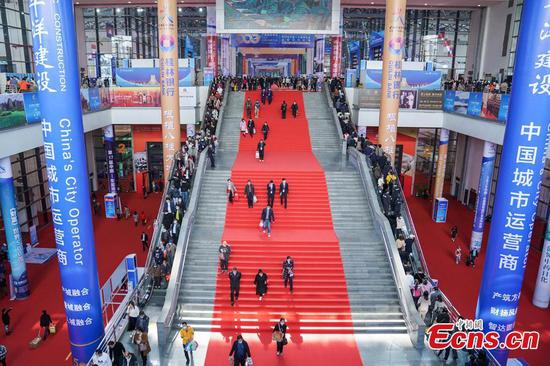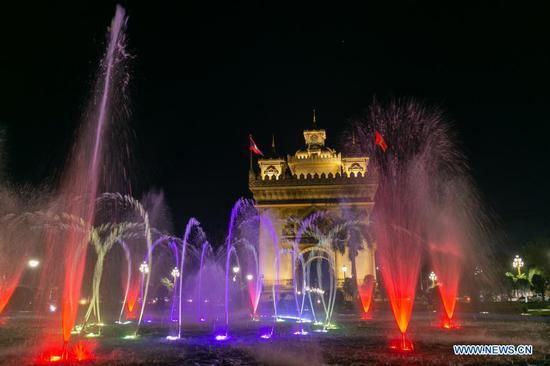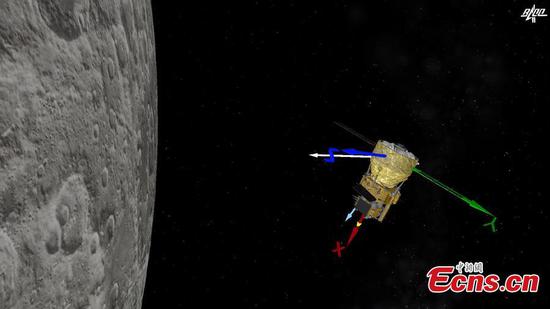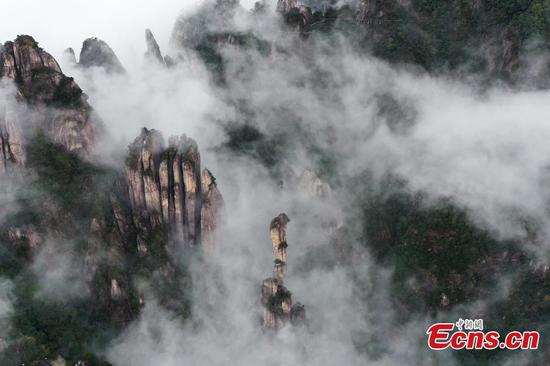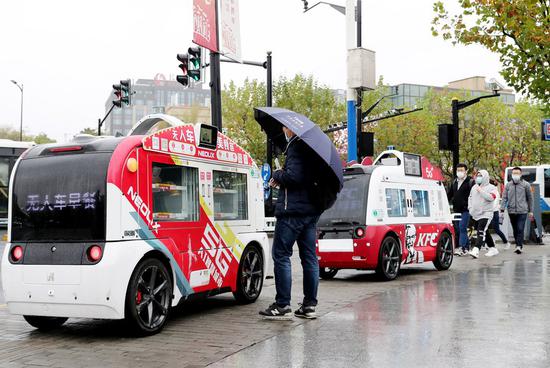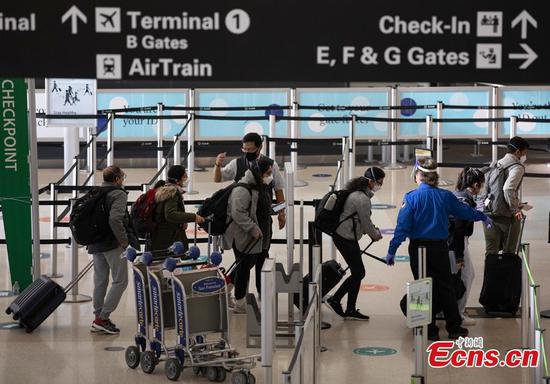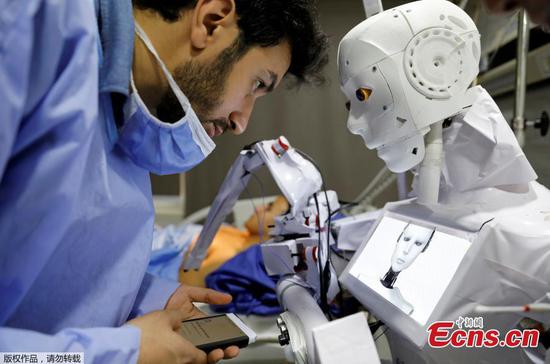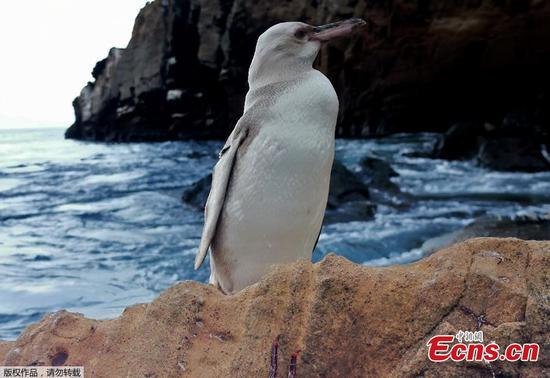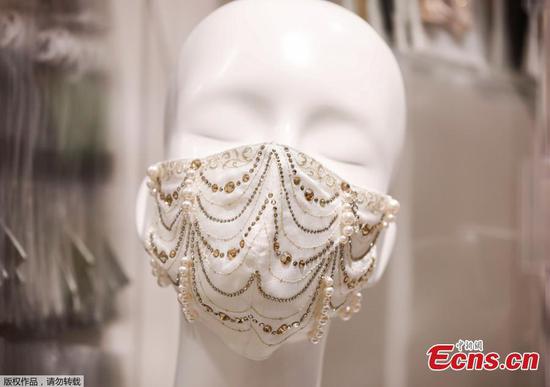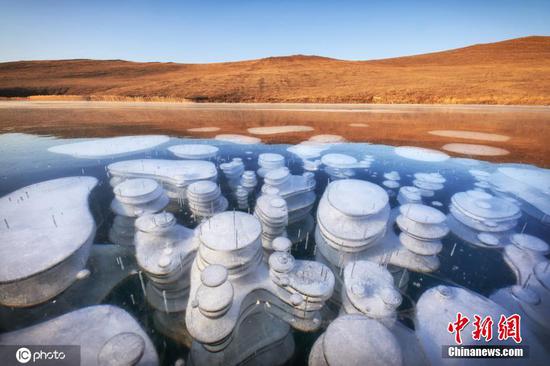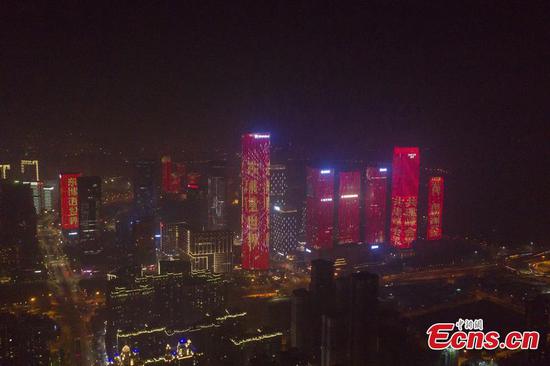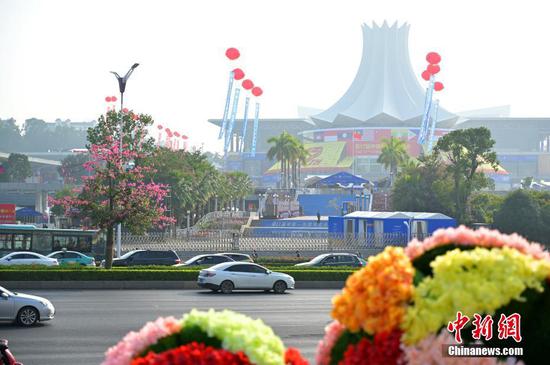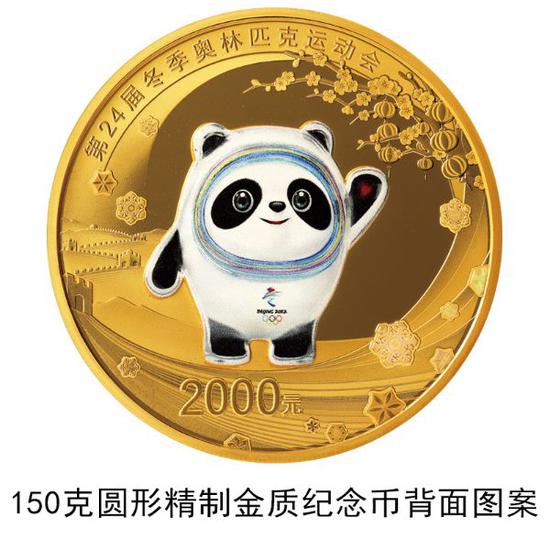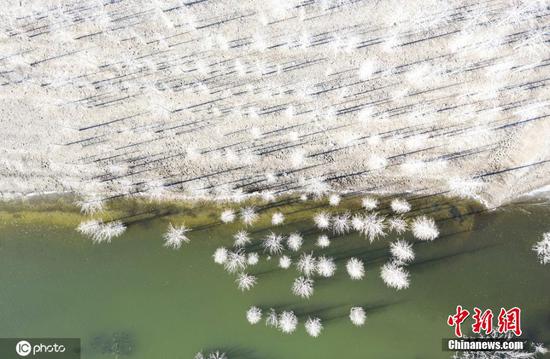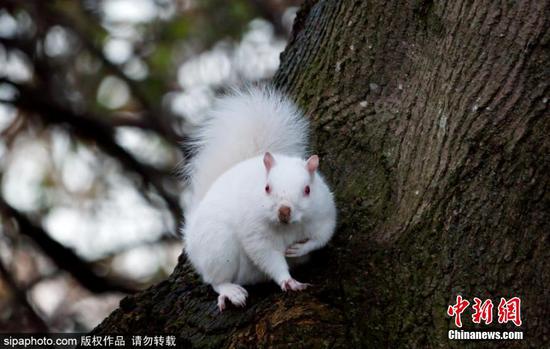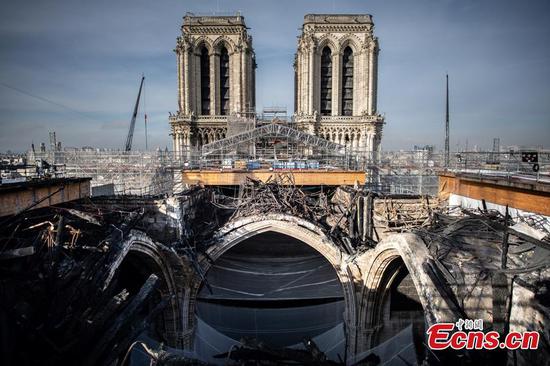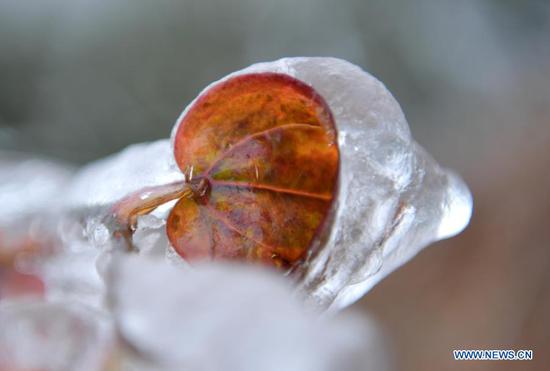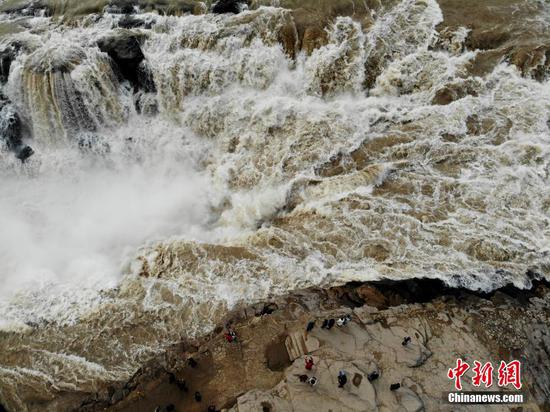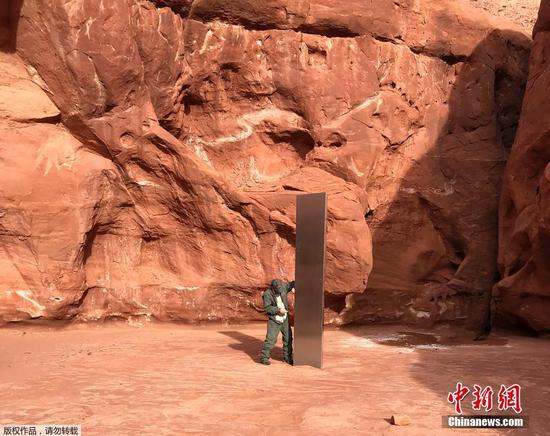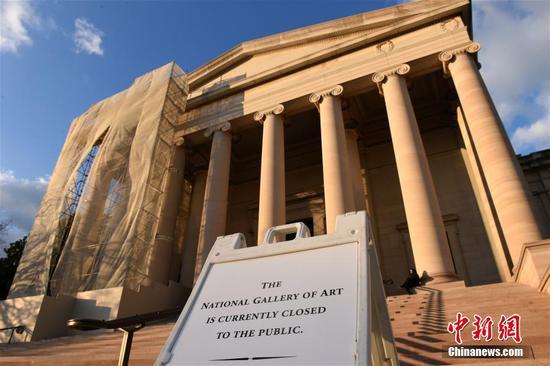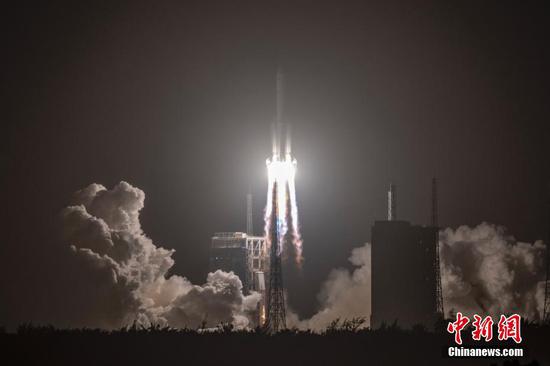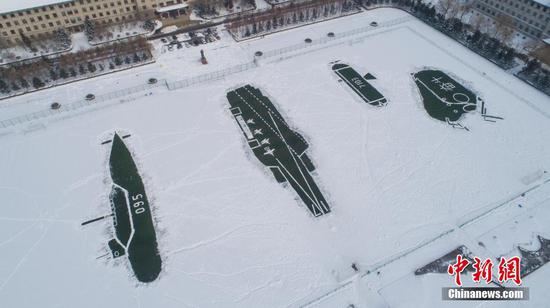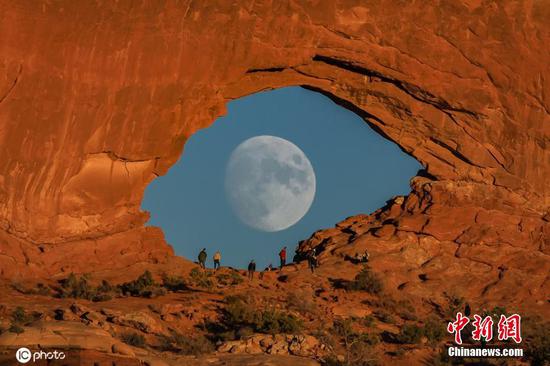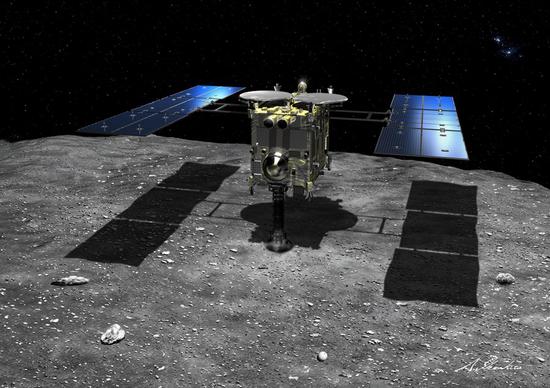
Simulated picture shows Hayabusa2 touching down on the asteroid Ryugu on Feb. 22, 2019. Japan's Hayabusa2 space probe successfully landed on the asteroid Ryugu, according to data from the Japan Aerospace Exploration Agency (JAXA). (Xinhua/JAXA)
A space capsule carrying samples from a faraway asteroid has landed safely in the South Australian outback.
Authorities on Sunday recovered the capsule, which was sent towards Earth by the Japanese Aerospace Exploration Agency's Hayabusa2 spacecraft following a six-year, 5.25-billion-km mission to collect rocks from the asteroid Ryugu.
It marks the first time that a sub-surface asteroid sample has returned to Earth, with scientists hopeful that the samples will help answer fundamental questions about the solar system including where the water came from.
The capsule briefly lit up the South Australian sky in the early hours of Sunday morning as it briefly turned into a fireball while streaking across the sky.
It landed in the Department of Defence's Woomera Prohibited Area approximately 500 km north of Adelaide and was later located by a helicopter.
Karen Andrews, Australia's Minister for Industry, Science and Technology, said the mission was an important scientific feat and a significant moment for the Australian Space Agency (ASA), which is headquartered in South Australia.
"This landing will enable scientists to gain insights into the origin and evolution of the solar system, including organic matter and water, which could hint at how our oceans came to be," she said.
"It also reinforces Australia's place as a trusted partner in space, as we look to triple the size of the local sector and create 20,000 new jobs by 2030."
Hayabusa2 was launched in 2014 and collected the samples in February and July 2019.









